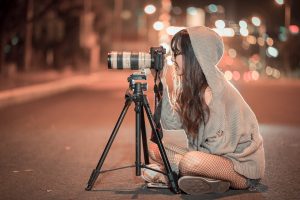Photography is a hobby, a skill, a career, but most importantly, an art form. For anyone who is thinking about taking up or pursuing photography, whether as a part-time hobby, full-time job or somewhere in between, here are some tips for budding photographers:
• You don’t have to spend a million dollars on equipment; sometimes the equipment required to take beautiful photos may seem offputting as it can cost a pretty penny. From flash equipment to the actual camera, to laptops and computers with the storage and capability to edit and handle photographs, the list goes on. Instead of buying it all new, try looking online at secondhand equipment https://mresell.co.uk/. Often, there is nothing wrong with this equipment; the previous owner may have simply upgraded, had too much or needed some extra cash.
• Online courses; there are lots of different options in terms of training and education as it relates to photography. Courses at colleges and institutions are a great way to get educated but don’t underestimate or overlook the value of online courses. These courses are just as good as in-person training and often offer the ability to go back and revisit the content, to do it at your own pace and can have cost benefits as well.
• Get the right software; don’t just assume you need Photoshop or any other software. Look into different editing and photography software to see which one works best for what you are looking to do. Read reviews, read product overviews and use the free trials which many of these software programs offer to help you find the best fit for you.
• A mentor can help; finding a local photographer whose work inspires, motivates and/or speaks to you, is a great way to get your foot in the door and your photography passion underway. A mentor is a fast track in a way, as this person can offer valuable insight, tips and tricks, and even introduce you to potential clients and partners if a career is what you are after.
• Trial and error; when starting with photography, try and take as many pictures of as many things as you can. Don’t wait for, or try and set up the perfect shot. Try different angles, lighting and muses. Keep all of the photos, try not to delete any too hastily, as these accidental or “oops” shots may actually turn out to be the ones you love the most.
• Get to know your camera; if you are buying a new camera or one that is new to you, make sure you get to know the different settings, options and the way it works. This will help you ensure that you can take the best pictures possible.
